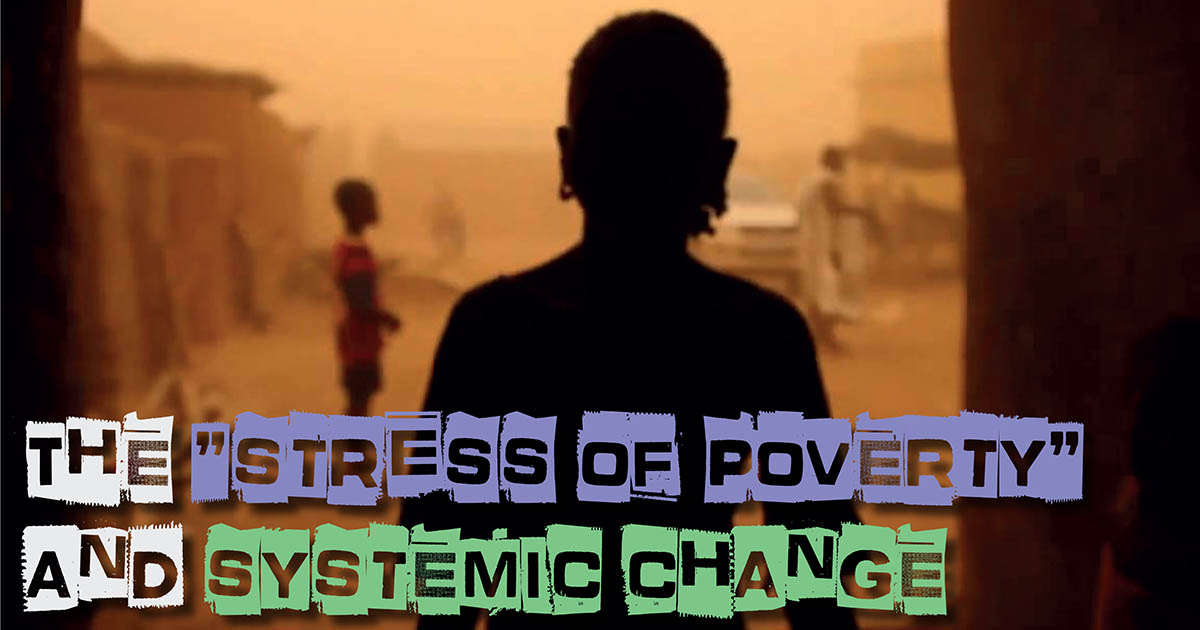
The culture of poverty, characterized by feelings of marginalism, dependence and exclusion, originates within the family, starting in childhood. Social and behavioral sciences recognize “poverty stress” beginning at a very young age. For almost nine years, Dan Torrington, as a member of “Voice of the poor – Western region” (the advocacy branch of the Society of Saint Vincent de Paul) has been trying to analyse this social scourge through his work for the Society, and has attempted to answer the following question: how is poverty propagated from one generation to the next, and how can we alleviate this major scourge of our societies today?
“The poor are poor because they are lazy and don’t want to work”
We have all heard these sentiments expressed in a variety of ways as an explanation of poverty. In fact, however, behavioral scientific research finds that the stress induced by the cumulative effects of the lack of basic human needs is a better explanation for long-term poverty.”When I joined St. Vincent de Paul and was making my first home visits, I gave little thought as to why a person/family was in a dire situation. My focus was the crisis at hand. The thought of poverty as a field of scientific research never occurred to me. Nine years later I have a broader understanding of poverty and know that Vincentians have an important role to play in easing the burden of poverty.” Dr. Ruby Payne, American educator and author of “A framework for understanding poverty”, defines poverty as something greater than the standard explanation given (i.e.: lack of financial resources). Relationships, mental, spiritual, affective, physical and cultural resources are more important, she believes, than the financial element alone. Paradoxically, Dr. Payne puts “Financial” as the least critical resource.
Gary Evans, a research psychologist at Cornell University in the United States, defines the link between the physical environment and a child’s health and well-being. He has conducted a 16-year research project measuring how a child’s environment (in all its aspects) impacts on its development and long-term mental health. Poverty and deprivation in early childhood leads to long-lasting adverse effects on children’s mental health and increases lifetime stress. From his research, the risk factors within the early years’ environment include: noise, poor quality housing, overcrowding, lower quality schools, frequent exposure to violence associated with low family income (limiting cultural opportunities), unstable family structures, frequent changes of accommodation, and frequent changes of partner by parents. Emotional instability and stress from early childhood are caused by lack of a balanced family structure, and parents’ anxiety about providing for their children’s needs and offering them a peaceful future is also passed on to the next generation.
The systemic change
Frederic Ozanam, founder of the Society of Saint Vincent de Paul reminds us that the issue of poverty is much more complicated than we might think. Simply helping someone in need, without understanding the circumstances and factors that have brought them to that state would be to address the problem from a very unrealistic perspective. He recommends studying the factors that lead to poverty in depth, in order to make a better response, to combat these issues and make long-term improvements to the lives of marginalized people. This is the principle of systemic change, which recommends going beyond the relief of immediate need for vulnerable people, by setting up programs and policies that aim at making individuals capable of identifying the causes of their poverty for themselves.
To read the article in full, see: http://famvin.org/en/2016/01/15/the-stress-of-poverty-and-our-role-as-advocates/
Source: http://ssvpglobal.org/







0 Comments